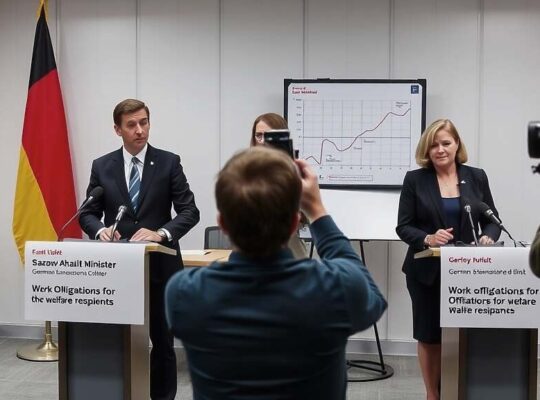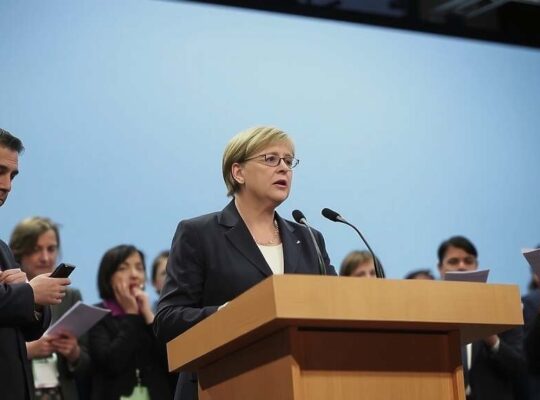The prospect of increased wealth and inheritance taxes in Germany is drawing sharp criticism from Clemens Fuest, President of the prestigious Ifo Institute, who warns of potentially damaging consequences for the nation’s investment climate. While acknowledging existing inequities within the current inheritance and gift tax system, Fuest cautioned against broad-based tax increases, arguing they risk exacerbating an already precarious economic situation.
The debate has been reignited by proposals from the Jusos, the youth wing of the Social Democratic Party (SPD) and the Seeheimer Kreis, a group of moderate SPD politicians, advocating for reforms aimed at greater wealth redistribution. These proposals typically involve higher tax rates on inherited assets and significant fortunes.
However, in an interview with “Welt” Fuest argued that such measures would be counterproductive. “There is a need for reform regarding inheritance and gift tax. There are gaps and injustices” he stated. “But that doesn’t mean we should increase the overall tax burden. If we do that – or if we increase other taxes, such as corporate taxes – investments will continue to decline.
Fuest’s concerns represent a powerful voice within Germany’s economic establishment and directly challenge the populist appeal of wealth taxation, which has gained traction within the SPD and beyond. He warns that the logic underpinning these proposals – namely, that increased tax revenue would allow for greater public spending – is fundamentally flawed. “The notion that we can then finance more things is likely to prove to be an illusion” he asserted, painting a bleak picture of a deepening economic crisis if such policies are implemented.
The President’s pronouncements highlight a growing tension within the governing coalition. While the SPD champions social justice and wealth redistribution, concerns over economic competitiveness and investor confidence, represented prominently by Fuest, present a significant hurdle to radical tax reforms. His warning carries significant weight, framing the debate not merely as one of social equity, but as a potentially critical juncture impacting Germany’s long-term economic prospects and its ability to navigate the current global headwinds. The divergence in perspectives exposes a fundamental disagreement on the best path forward for the German economy and the role of taxation in achieving broader societal goals.












